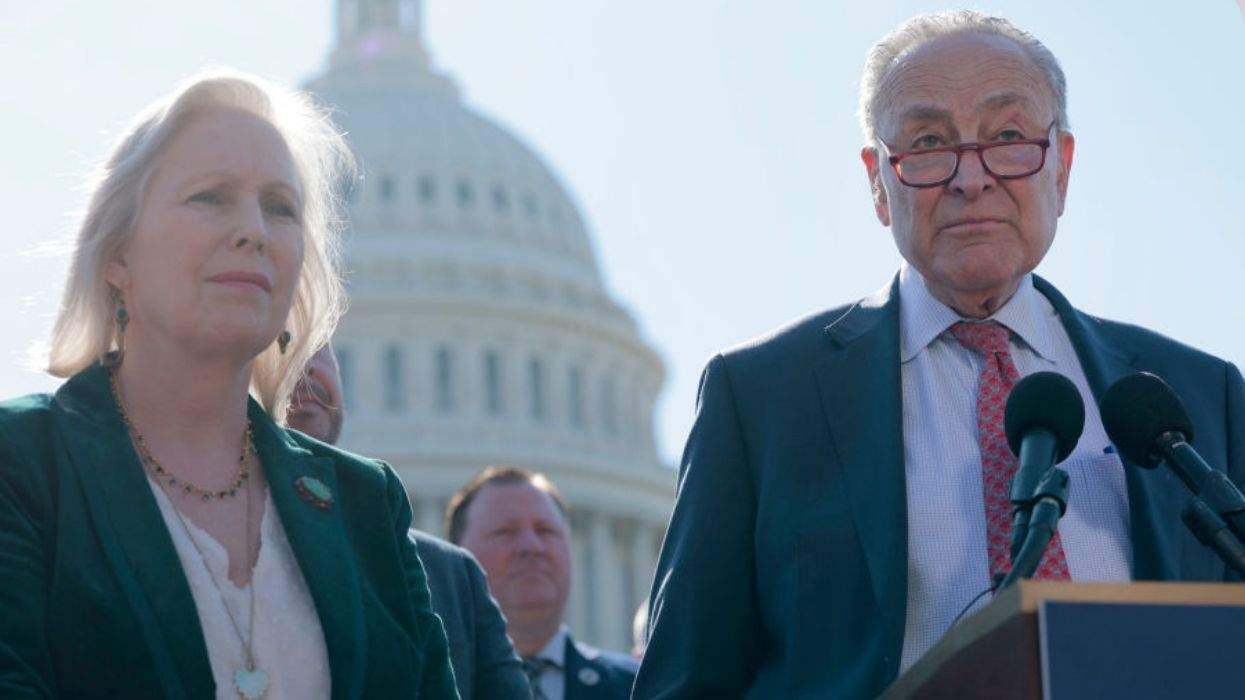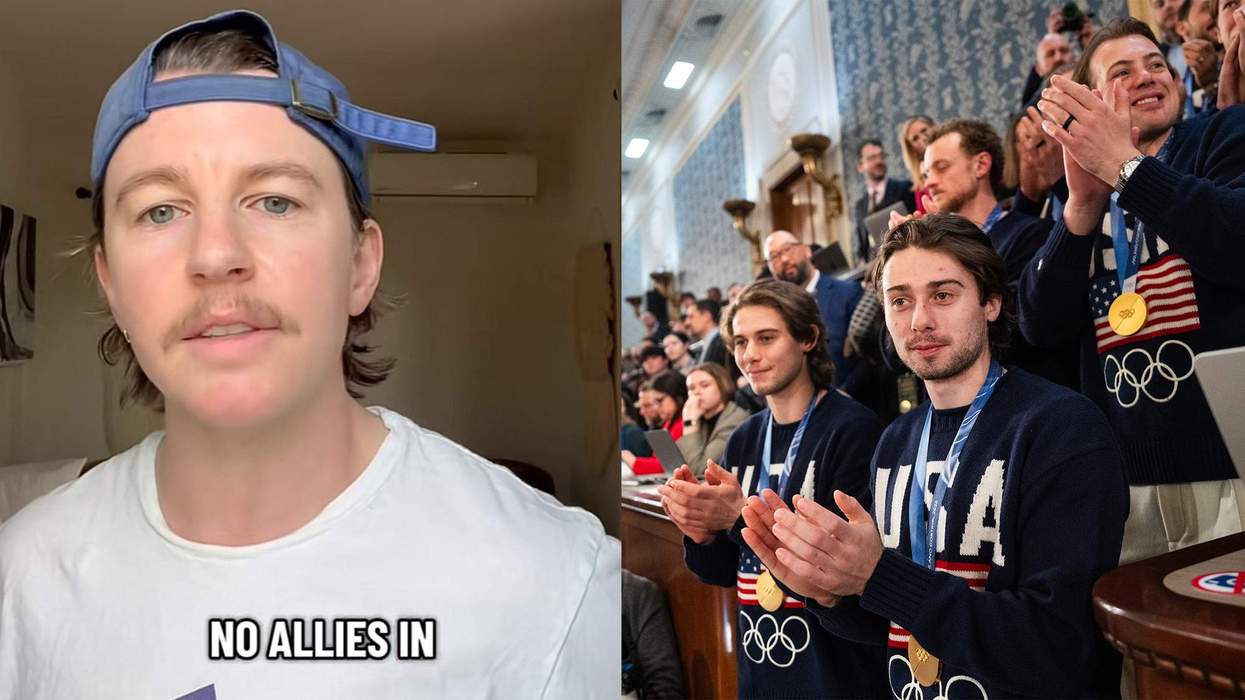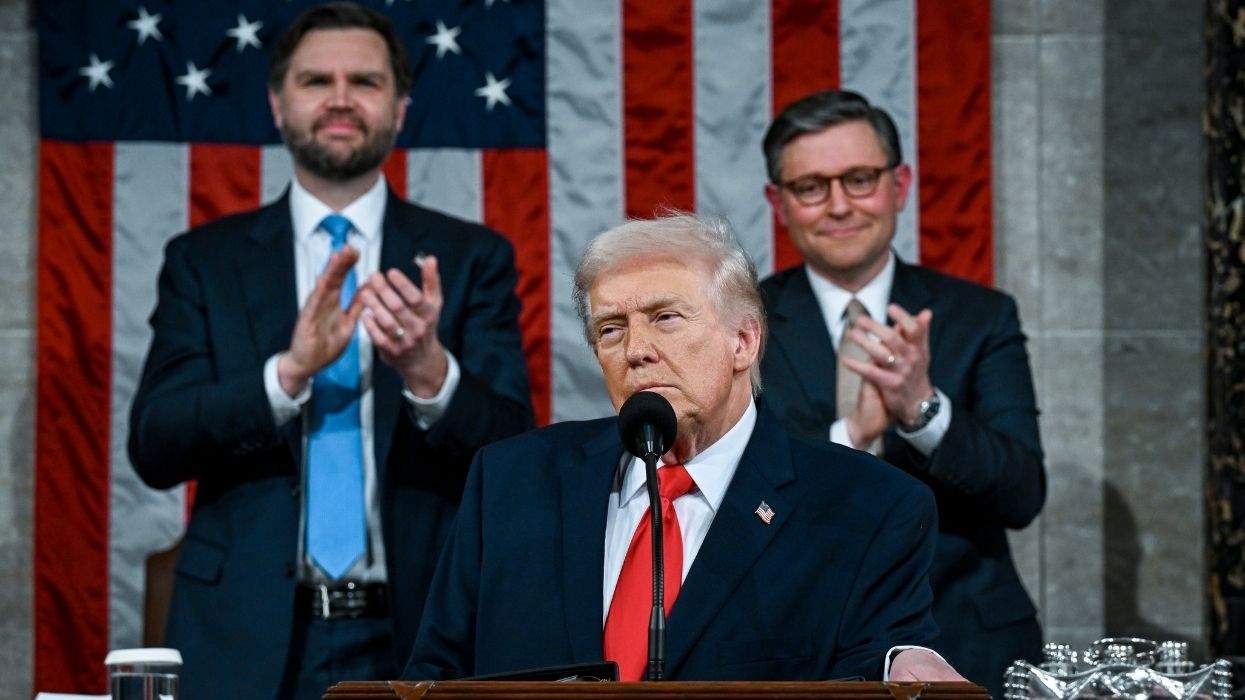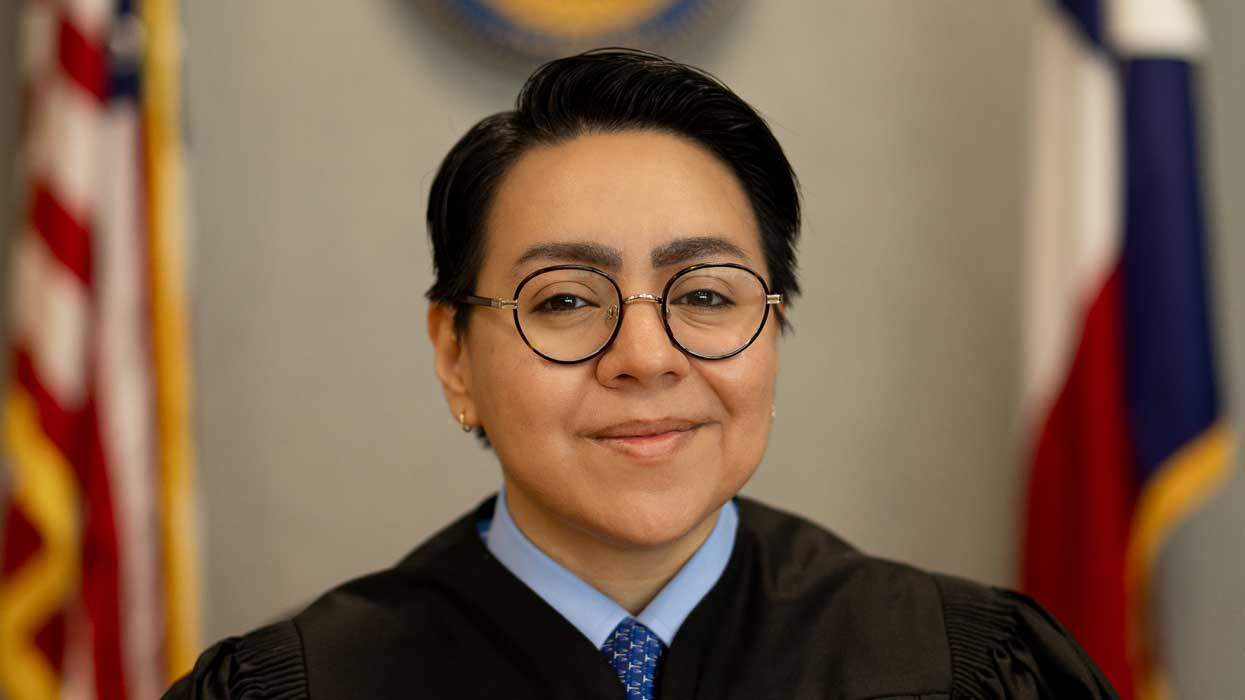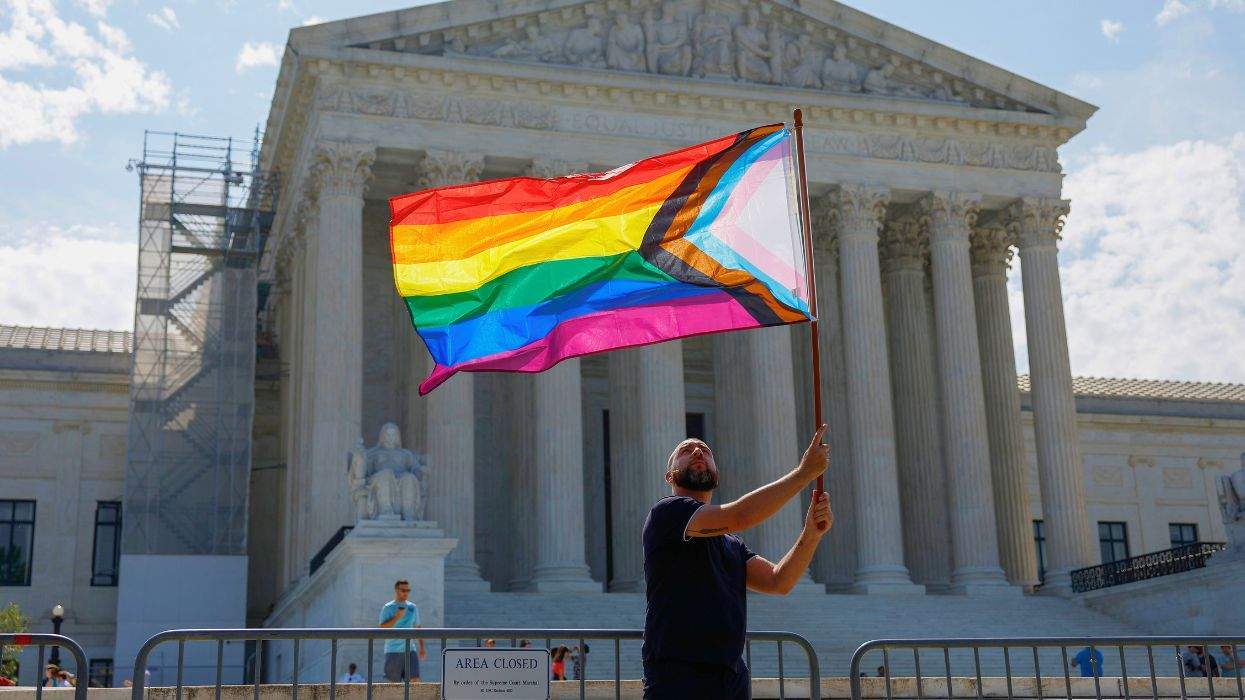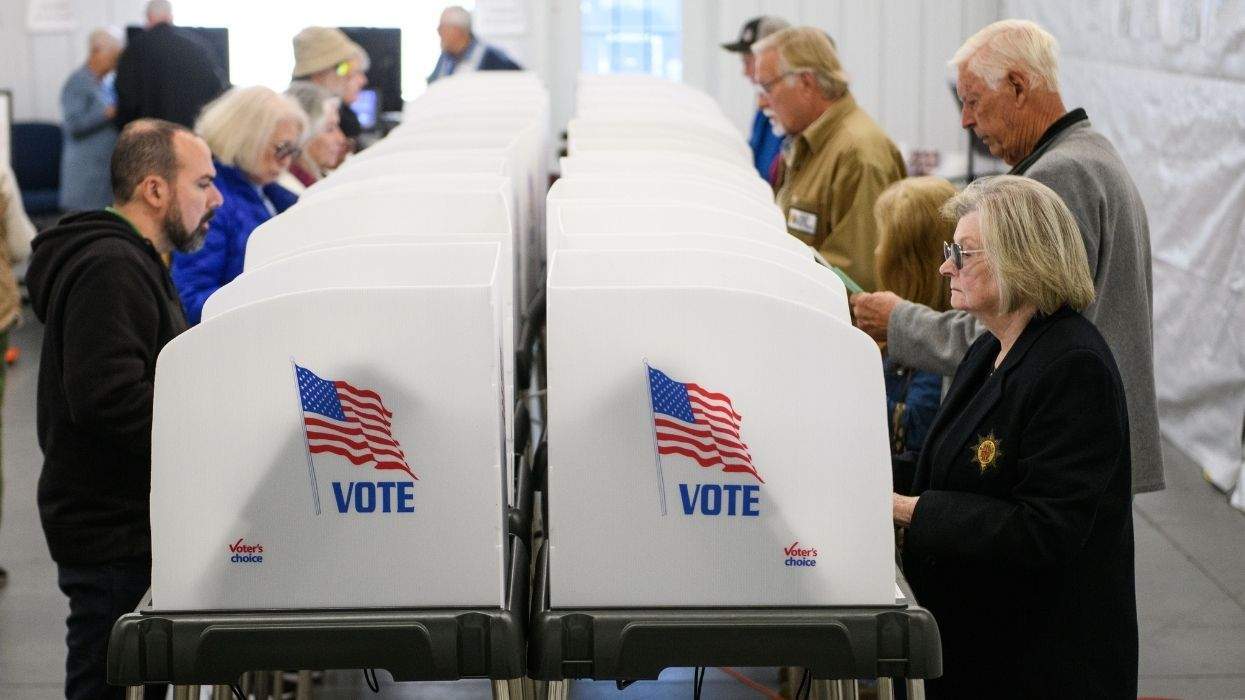The original Will & Grace series that ran from 1998 to 2006 on NBC was groundbreaking programming that at the same time was oft-criticized for its "gay but narrow" take on life through the eyes of four attractive, privileged white characters. But the new Will & Grace that began airing in September raises yet another question altogether: Do aging characters have anything interesting to say? Unfortunately, some of the early responses to the new series (before it aired) questioned whether middle-aged characters could have anything fresh to add.
Even the show's original creators, Max Mutchnick and David Kohan, expressed concerns to Brooks Burnes of The New York Times about whether the characters who broke boundaries 11 years ago would still have voices that resonate today. But no fear, because, as Burnes wrote, Will and Grace and Karen and Jack "miraculously seem not to have aged" since they left the airwaves more than a decade ago. In fact, social media and entertainment coverage seemed consistently relieved that the four actors all possess the magical ability to repel wrinkles, retain their hairlines, and ward off the rolls around the middle that haunt many of us as we age. (For the record, in real life Eric McCormack is 54; Debra Messing, 49; Sean Hayes, 47; and Megan Mullally, 58.)
It's hard to know where to start with the ageism that has flowed in the discussions about the series' return. Perhaps this shouldn't be surprising in a consumerist, throwaway society where nothing seems to matter more than the next new thing, and where history, experience, and wisdom seem to be consistently regarded as having little value. A mindless and relentless youth focus may be a peculiarly American disability. I recall legendary folksinger Joan Baez saying years ago that while most in the U.S. decided she was "done" by middle age, her European crowds never stopped showing up.
But maybe, just maybe, one benefit of the return of Will & Grace is that it will force a discussion of aging in all its complexity -- for LGBTQ people and society as a whole -- out into the open. It's a conversation we desperately need. While the U.S. population is aging dramatically, you'd never know it from what trends in media of any sort. With anti-aging lotions and potions accounting for more than $100 billion in U.S. sales and the most popular filter on Snapchat being one that gives an instant facelift, our addiction to youth is one that's far from waning.
In the first few episodes of the new Will & Grace, perhaps not surprisingly, aging is all over the place. Whether it's Will "repurposing" a hot date with a much younger guy into a discussion of LGBTQ history, Jack's horror at being perceived as the middle-aged gay man that he is, or Grace struggling to reenter the dating world as she's pushing 50, the real-world reality of getting older is rarely missing from the show's themes. Those of us who have aged along with the characters from Will & Grace (self-disclosure -- I was 36 when the original series made its debut, and today, clock in at 56) can certainly relate to these themes, even if our lives as aging people aren't always accompanied with quite as much comedic genius. Perhaps these explorations about aging may hit a chord with some younger audiences as well. Recent work by SAGE suggests strong interest among newer generations of queer people in connecting more with older LGBTQ people.
Of course, we can only expect so much from a sitcom, whose point first and foremost is to make people laugh. Whether it's age or race or gender identity or fill-in-the-blank, the line between funny and offensive is a highly subjective one (read: endless complaints over the years about the words that have come out of the mouth of Megan Mullally's Karen).
But what a gift it would be to LGBTQ people if Will & Grace helped shatter the conspiracy of silence around aging that seems to have such a grip on queer communities. The fact that so many of us run from aging as fast as our lavender feet will carry us is ironic at best. Let's not forget that we had to fight like hell through the darkest days of the AIDS epidemic for the right to grow old. Many of us didn't make it. How strange that so many of us who did survive seem to want to make believe that older age -- what some call the "third chapter" -- somehow doesn't exist for us as LGBTQ people.
And what if that "third chapter" of Will & Grace took a shot at portraying the diversity of LGBTQ people of all ages -- addressing a criticism that has followed the show for almost 20 years -- and embraced intergenerational and intersectional relationships that in fact fuel our communities in real life? (It might also appeal more to younger viewers who have no points of reference for a show that ran more than a decade ago.) Imagine the crazy chemistry that could exist between the hilarious African-American actor Tituss Burgess (Unbreakable Kimmy Schmidt) and Sean Hayes if Burgess were to portray one of Jack's new BFFs? Or maybe Grace acquires a new client who is played by none other than the trans-fabulous Janet Mock! And since we're going there, why not write a walk-on for breakout gender-bending actor "Miss" Lawrence Washington (Star, Fashion Queens), or make the Filipino-American comedian Alec Mapa (Ugly Betty) a regular? Will & Grace is set in New York City, for God's sake, and could reflect the most diverse city on the planet.
We'll see just how much of a difference the new Will & Grace makes when it comes to the invisibility of queer aging. But it's off to a decent start, at least on that front, by having the temerity to assume that four people pushing (and even exceeding!) 50 have something fresh to say, and by smoking out the rampant ageism that exists within our communities and more broadly. And for that reason alone, I say welcome back, Will and Grace and Jack and Karen!
MICHAEL ADAMS is the CEO of SAGE, the country's largest and oldest organization dedicated to improving the lives of LGBT older adults.

